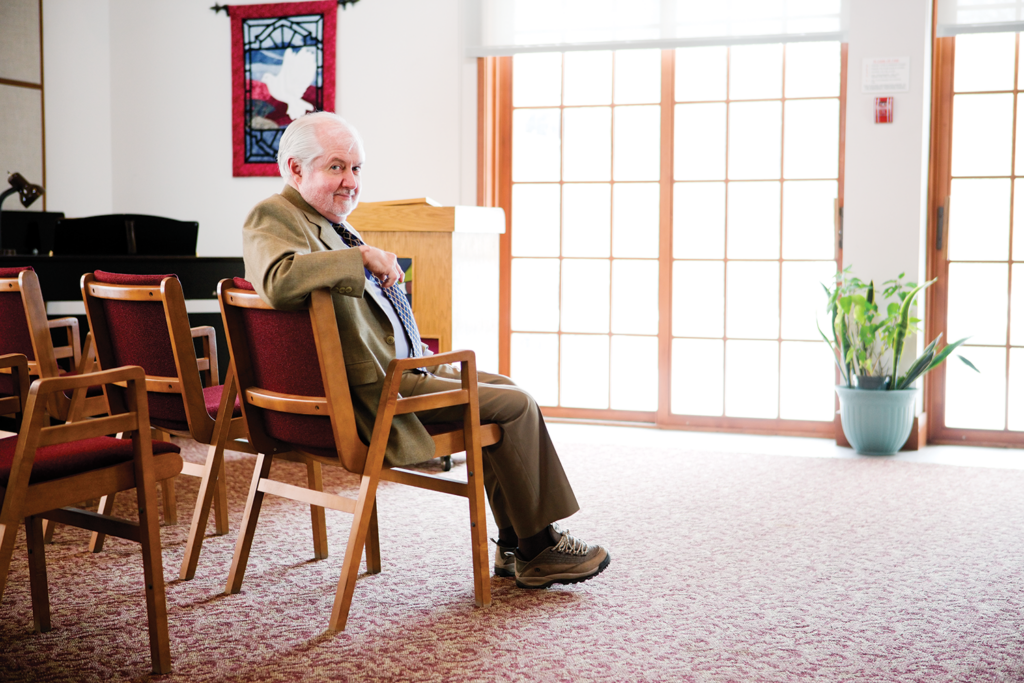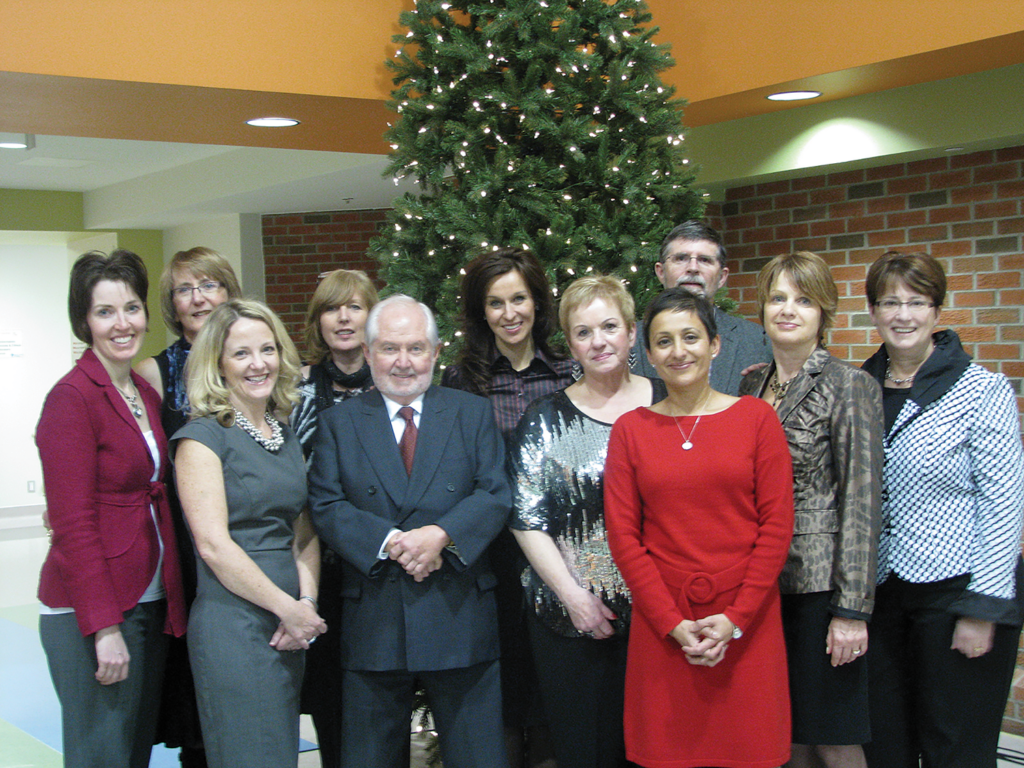The late Reverend Bob Glasgow connected people in their grief to communities of healing. Now, 12 years after its opening, the Bob Glasgow Grief Support Centre continues to be a place of healing and hope.
When Bob started his career, the word grief was whispered.

One of the hardest and most challenging experiences every person will go through was isolating and taboo.
Having grown up with severe juvenile rheumatoid arthritis, Bob was robbed of many childhood experiences. Luckily, his family connected him with dedicated medical providers and encouraged him to live life to the fullest. But through his own experience growing up, Bob saw many face loss and heartache due to the cruel nature of chronic disease.
It created a desire in him to help people through the most challenging times of their lives. As the first non-denominational Chaplain at Rockyview General Hospital, Bob saw how grief and sorrow were impacting many people and knew that he could make a difference.
In the early 1990s, the community of Brooks reached out to Reverend Glasgow to help them support families in the community that were increasingly struck with tragedies that led to the loss of their children and youth. For Bob, he felt the whole community cry out for help.
“Grief counselling was one of Bob’s true callings,” recalls his wife, Joan Glasgow. “He connected to people’s hearts. That’s what allowed him to see the need people had in their grief and provide the listening ear and comfort they needed to help them heal.”
It was through supporting the people of Brooks that Bob found his purpose to change how grief and bereavement would be addressed and spoken about. He opened his doors to a new way of supporting people through counselling so that they would no longer feel alone in their journey.
Establishing the Bob Glasgow Grief Support Centre
Word continued to spread about the work that Reverand Glasgow was doing. He influenced how patient care was provided at Rockyview General Hospital and even supported the staff in their own times of need. Nurses would often comment how the atmosphere would change when Bob came into the unit.
He became a mentor and encouraged others to share their gifts of compassion and caring.
His favourite time at the hospital was cuddling the babies, but during that time he also saw immense need for a perinatal bereavement program. It was the start of a new way the hospital could support parents through loss.
“Bob cared for people where they were in the moment,” says Joan, “and that’s what made him such a sought-after individual to help coach and mentor teams in all aspects of grief– within healthcare, with the Victims Assistance Unit at Calgary Police Service, STARS, Wellspring Calgary, and even continuing care following his own retirement.”
As the program developed, individual counselling and supportive groups became an important part that provided people with tools to deal with what they were going through, but it unsuspectingly also created a community. The program connects people who experience similar losses, such as a child, partner, or parent. Individuals who have gone through the group program often reflect on how impactful the peer connections were, and remain, on their grief journey.
Many grateful members who benefited from Bob’s counsel came together to help develop a new dedicated space that would allow for more grief counselling programs. In 2011, with a community investment of $625,000, the Bob Glasgow Grief Support Centre opened.

How donor support continues to help grief counselling today
Twelve years later the Grief Support Centre continues to counsel many who are experiencing grief. The program receives growing support from volunteers and the group component remains a staple in the healing journey. It is now recognized as a centre of excellence in grief and bereavement care because Bob spent much of his life sharing how grief care offers healing and renews hope.
“They don’t teach you how to get over death; no one gets over it. I grieve and ache over [my son] every day, but the Grief Support team gave me tools I can use to grieve and still love my husband and our daughter and have the strength to get out the front door.” – Committee member at the 2011 opening of the Grief Support Centre
While the need for grief support continues to grow, the Centre relies on community donations to ensure that group therapy can continue to support those who need it.
What started with the heart of one man has led to a legacy that has forever changed the community.
“[Bob] allowed us to face our grief and get our life back again. He was always there for us and allowed us to understand how each other was feeling, to talk about our son, to cry our eyes out and then put ourselves back together.” – Grateful Patient


